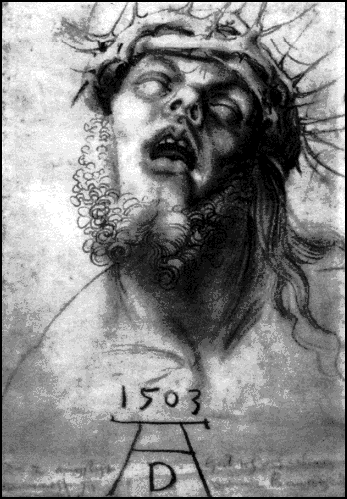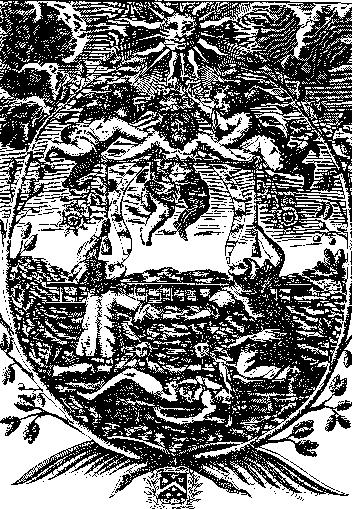Christianities
A Reading

Not everyone could be right, of course, in this understanding, for different groups of Christians in the ancient world held varying, even contradictory, points of view. Unless Jesus provided an entire panoply of self-contradictory teachings, then some, most, or all of these groups represented perspectives that were not his. Groups that insisted there was only one God (and that Jesus had taught so) could not be right if groups insisting there were two Gods (and that Jesus had taught so) were right.
Moreover, one significant feature of these ancient religions --- with the partial exception, again, of Judaism --- is that worship never involved accepting or making doctrinally acceptable claims about a god. There were no creeds devised to proclaim the true nature of the gods and their interaction with the world, no doctrinally precise professions of faith to be recited during services of worship, no such thing as "orthodoxy" (right beliefs) or "heresy" (false beliefs). What mattered were traditionally sanctioned acts of worship, not beliefs.
But then came Christianity. As soon as some of Jesus' followers pronounced their belief that he had been raised from the dead, Christians began to understand that Jesus himself was, in some way, the only means of a right standing before God, the only way of salvation. But once that happened, a new factor entered the religion scene of antiquity. Christians by their very nature became exclusivists, claiming to be right in such a way that everyone else was necessarily wrong. As some of the early Christian writings exclaimed, "There is salvation in no one else, for there is no other name under heaven given among humans by which we must be saved" (Acts 4:12) and "The one who believes in his name has eternal life; the one who does not obey the son will not see life, but the wrath of God remains on him" (John 3:36). Or, as Jesus himself was recorded as saying, "I am the way, the truth, and the life: No one comes to the Father except through me" (John 14:6).
Moreover, since Christians maintained that (a) what ultimately mattered was a right relationship with God, (b) a right relationship with God required belief, and (c) belief had to be in something, rather than some kind of vague, abstract faith that things were right (or wrong) with the world, then Christians, with their exclusive claims, had to decide what the content of faith was to be.
What exactly does one have to believe about God in order to be right with him? That he is the supreme God above all other gods? That he is the only God and that no others exist? That he created the world? That before now he never had any involvement with the world? That he created the evil in the world? That he is completely removed from evil? That he inspired the Jewish Scriptures? That a lesser deity inspired those Scriptures? What does one need to believe about Jesus? That he was a man? An angel? A divine being? Was he a god? Was he God? If Jesus is God and God is God, how can we be monotheists who believe in one God? And if the Spirit is God, too, then don't we have three Gods? Or is Jesus God the Father himself come to earth for the salvation of the world? If so, then when Jesus prayed to God, was he speaking to himself?
 And what was it about Jesus that brought salvation? His public teachings, which if followed provide the way to eternal life? His secret teachings, meant only for the spiritually elite, whose proper understanding is the key to unity with God? His way of life, which is to be modeled by followers who like him must give up all they have for the sake of the kingdom? His death on the cross? Did he die on the cross? Why would he die on the cross?
And what was it about Jesus that brought salvation? His public teachings, which if followed provide the way to eternal life? His secret teachings, meant only for the spiritually elite, whose proper understanding is the key to unity with God? His way of life, which is to be modeled by followers who like him must give up all they have for the sake of the kingdom? His death on the cross? Did he die on the cross? Why would he die on the cross?
But what of these other groups? We have looked at some important writings from the early Christian centuries. Gospels of Peter and Thomas, and, if it be authentic, (Secret) Mark, the Acts of Paul and Thecia, the Acts of Thomas, the Acts of John, an Apocalypse of Peter, and several other important books, lost and now found. There will be many more for us to consider as we proceed with our study. Not only are these documents important in themselves, however; so too are the social groups that produced, read, and revered them. For there were many early Christian groups, most of them recognizing the eternal significance of the theological truths that they claimed, and yet most of them also at odds --- not just with the Roman religions surrounding them and the Jewish religion from which they emerged but also with one another. These internal disputes over which form of the religion was "right" were long, hard, and sometimes ugly.
Among the fascinating "discoveries" by scholars in modern times has been the realization of just how diverse these Christian groups were from one another, just how "right" each one felt it was, just how avidly it promoted its own views over against those of the others. Yet only one group won these early battles. Even this one group, however, was no monolith, for there were enormous untracked territories and gigantic swaths of doctrinal penumbrae within the broad contours of theological consensus it managed to create, shady areas where issues remained unresolved until later rounds of trial and error, dogmatism and heresy hunting, led to yet further debate and partial resolution. We will not be plumbing the depths of those later debates from the fourth century and later. Their nuances are difficult for many modern readers to appreciate or even fathom. Instead, we will focus our attention on the earlier centuries, when some of the most fundamental issues of early Christian doctrine were debated: How many gods are there? Was the material world created by the true God? Was Jesus human, divine, or both? These issues, at least, were resolved, leading to the creeds still recited today and the standardized New Testaments now read by millions of people throughout the world.
In this second part of our study, we will consider various groups that held wide-ranging opinions on such matters, groups attested in numerous ancient sources, including the writings of their Christian opponents who found their views offensive at best and damnable at worst. Four groups will occupy our attention in the chapters that follow: the Jewish Christian Ebionites, the anti-Jewish Marcionites, some early Christian Gnostics, and the group we have already labeled the proto-orthodox. Once we have described the various beliefs and, to a lesser extent, the known practices of these groups, we will be able to proceed in part 3 to consider how they engaged in their battles for dominance, leading to the virtual elimination of all groups from the Christian world through the victory of the one group that then successfully declared itself orthodox.
Bart D. Ehrman
© 2005, Oxford University Press